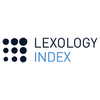The UK High Court recently delivered a decision with significant implications for pharmaceutical companies seeking Supplementary Protection Certificates (SPCs). In this post, I’ll be taking a look at SPCs and the effect of this decision on the SPC landscape.
What is an SPC?
SPCs are intellectual property rights specifically linked to pharmaceutical and plant protection products. They extend patent protection for these products by up to five years beyond the standard 20-year term. This extension compensates for time invested in the rigorous safety and efficacy testing required for regulatory approval before commercial sale.
Critically, SPCs are only available for products protected by existing patents and require valid marketing authorisations issued by regulatory authorities.
Merck Serono S.A. v The Comptroller-General of Patents, Designs and Trade Marks [2023] EWHC 3240
There are two prior decisions from the Court of Justice of the European Union (CJEU) that are highly relevant to this present case, and worth briefly discussing.
The first decision from July 2012, referred to as “Neurim”, stated that that patents covering new therapeutic applications of existing drugs could still qualify for SPCs, even if the drug has already been marketed for other therapeutic indications. However, only the specific new use protected by the patent would be eligible for SPC protection.
The second decision, referred to as “Santen”, came eight years later in July 2020. In this case, the Neurim decision was essentially reversed. It was decided that the marketing authorisation being relied upon to obtain the SPC cannot be considered to be the first marketing if it covers a new therapeutic application of an active ingredient, and where that active ingredient has already been the subject of a marketing authorisation for a different therapeutic application.
Now, in the present UK High Court case, Merck applied for an SPC at the UK Intellectual Property Office (UKIPO) in February of 2018, therefore between the Neurim and Santen decisions. The Merck SPC application was for cladribine in treating multiple sclerosis, relying on a marketing authorisation and a patent for this specific use. However, there were earlier marketing authorisations for cladribine used for leukaemia.
The UKIPO then refused the application in September 2021 in light of the Santen decision.
Merck appealed the decision and argued that the UKIPO should follow the decision in Neurim because that was the relevant law at the time of Merck’s SPC application.
The judge ruled against Merck, stating that the Santen decision should be applied retroactively, meaning that it would be applicable to SPC applications filed prior to the date of the Santen decision.
Impact on SPC strategies
This ruling reinforces the Santen decision in the UK, so it is not possible to obtain SPCs for drugs for new indications. Further, this case shows that companies applying for SPCs should be cautious about relying on existing case law, as it may change.
Future Developments
This decision may be appealed by Merck, so it will be interesting to see if the Court of Appeal judge rules differently.
In this case the UK judge relied upon CJEU decisions to guide the judgement. However, the judge also noted that post-Brexit UK courts may diverge from CJEU case law regarding SPCs, making future developments intriguing.
Seek Expert Advice
If you or your company have any questions regarding SPCs, please feel free to get in touch!





















